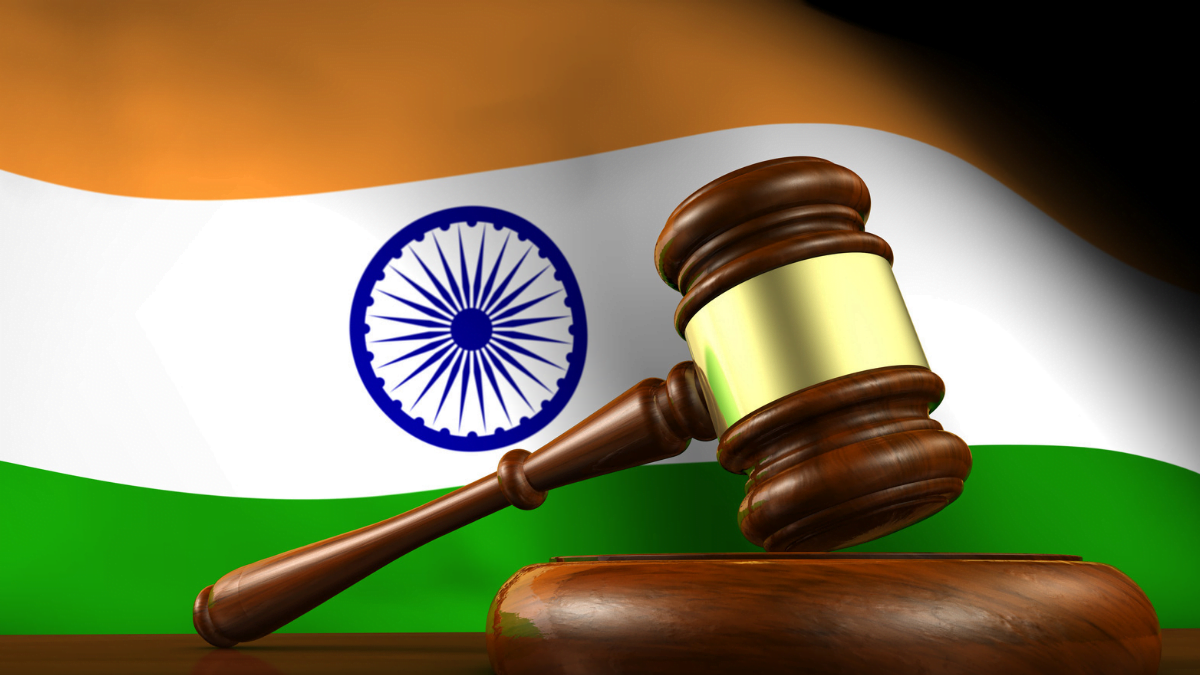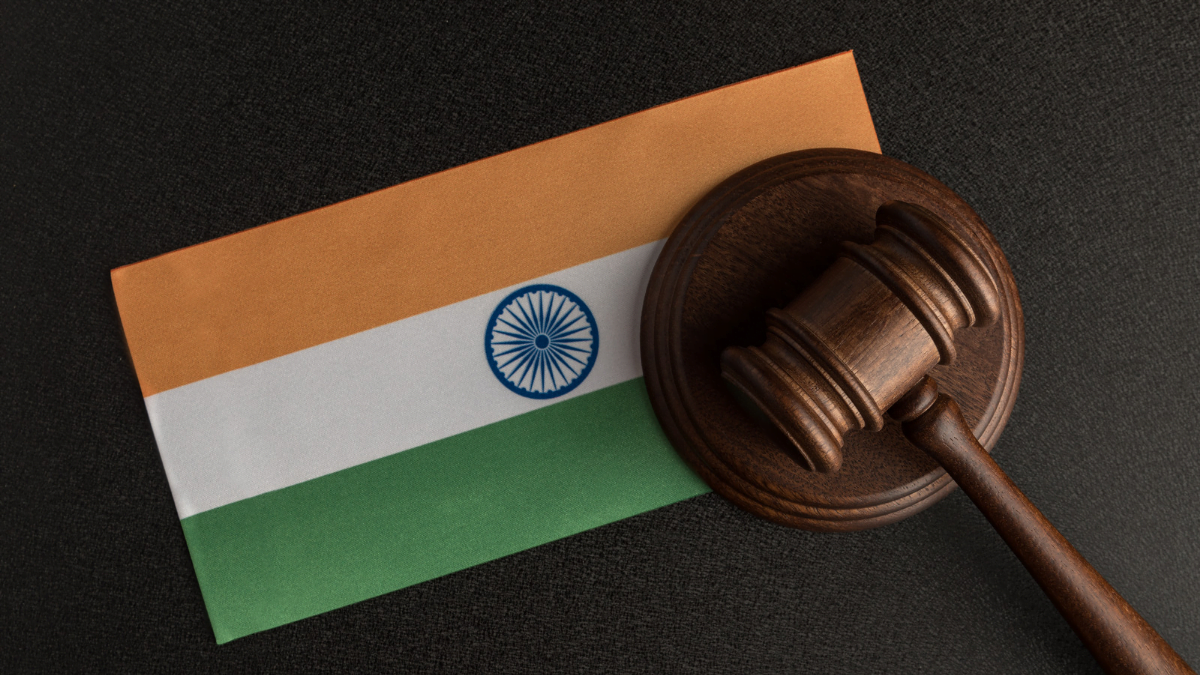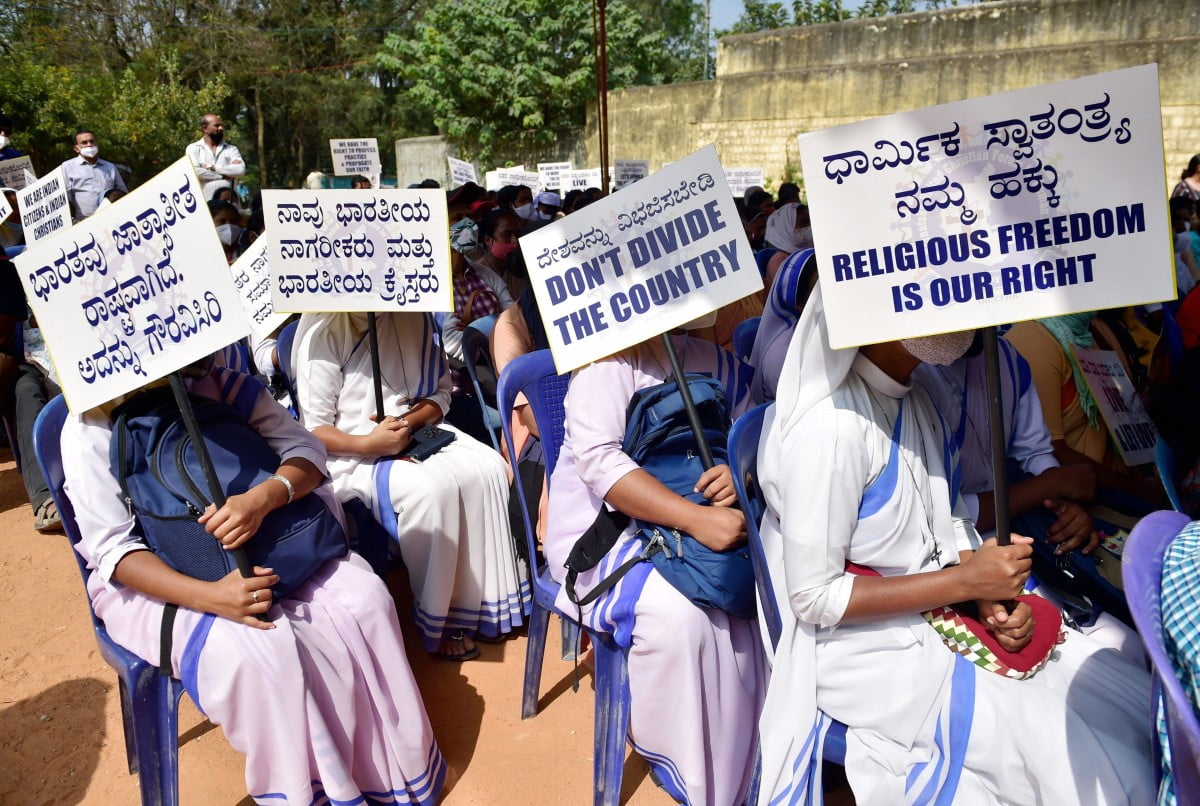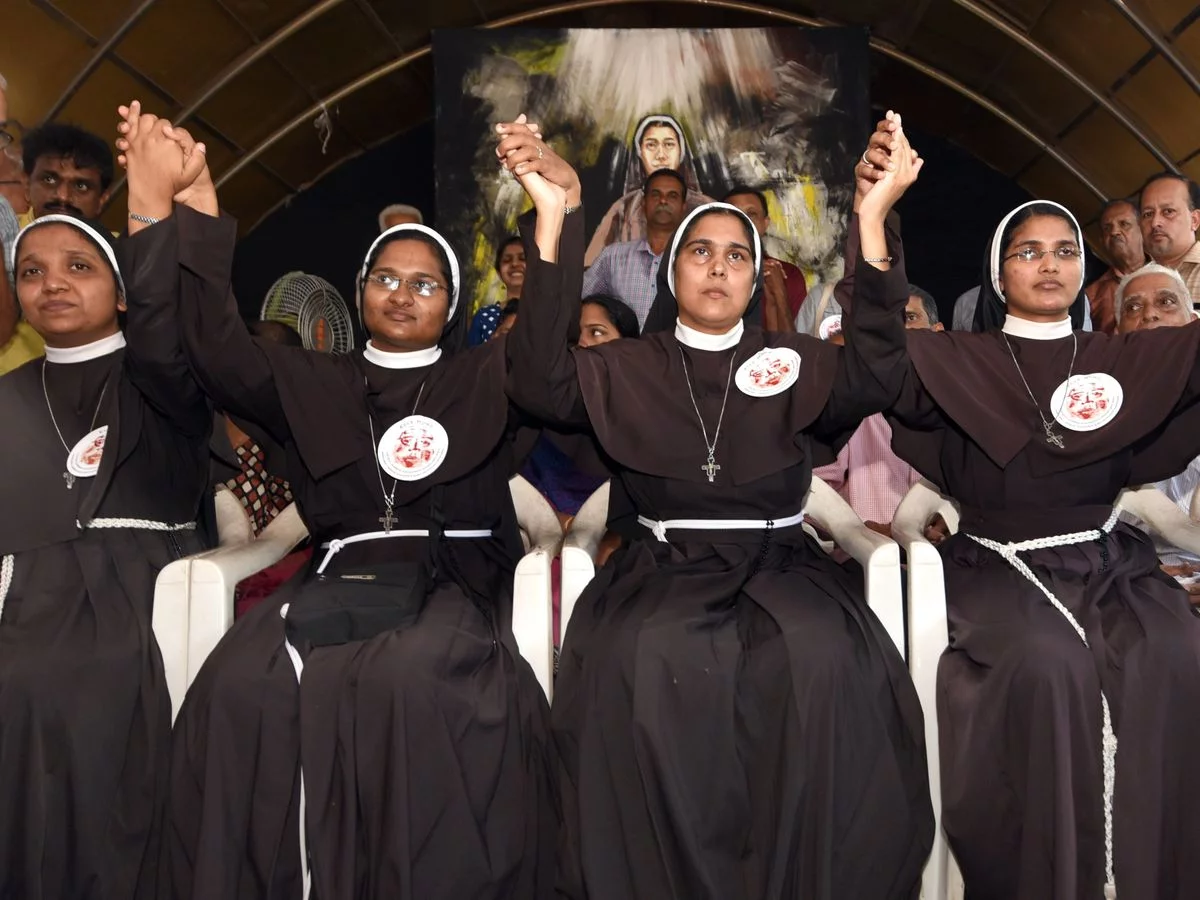Rajasthan is in the process of introducing legislation aimed at tackling religious conversions carried out illegally in the state. Responding to a 2022 public interest litigation, the state government informed the Supreme Court that the law is in the pipeline. The PIL, filed by BJP leader Ashwini Upadhyay, sought directions to the Centre and states to take ‘stringent steps to control fraudulent religious conversion and religious conversion by intimidation, threatening, deceivingly luring through gifts and monetary benefits.’
The Supreme Court bench considering the petition in 2022 noted that if true, forceful religious conversions are a serious issue that could affect the nation’s security.
The Supreme Court bench considering the petition in 2022 noted that if true, forceful religious conversions are a serious issue that could affect the nation’s security. The court also sought responses from the Centre and states in the matter. Petitions challenging anti-conversion laws in other states for being discriminatory are also being considered.
Anti-conversion laws found favour in India during colonial rule, where many Princely States fearing proselytising by British missionaries would lead to the local Hindu population adopting Christianity, instituted these laws within their regions. While India has no national-level law governing religious conversions, states are free to make their own laws with regard to the matter. Odisha was the first state post-independence to institute such a law.

As of 2023, nearly a third of states in India have such anti-conversion provisions. Most of these were instituted, or at least revised to be broader and carry harsher punitive measures, since 2017 under BJP state governments. A majority of these states also make marriages involving religious conversions null and void and consider conversion done solely to enter into marriage unlawful.
These laws against illegal and fraudulent religious conversions, popularly known as anti-conversion laws, have long been weaponised by state actors and Hindutva outfits in the states where they have already been implemented. These grossly invasive, discriminatory laws of dubious constitutionality are rapidly being enforced in state after state in a bid to prevent voluntary conversions and interfaith marriages. As more states adopt this legislation and increase its scope for harm with broad and vague language, the threat these laws pose to personal liberty and religious freedom is becoming increasingly conspicuous.
Government overreach and state abuse
Blatant government overreach of this nature is not only antithetical to religious freedom but also to personal liberty. While positioned as legislation directed only at coerced conversions, it’s clear that these laws seek to prevent voluntary conversions by creating legal and logistical hurdles in accessing them by taking a heavy-handed approach.
Blatant government overreach of this nature is not only antithetical to religious freedom but also to personal liberty.
The United States Commission on International Religious Freedom (USCIRF) found that these anti-conversion legislation have three common features across states: prohibitions on conversions, notice requirements, and burden-shifting provisions. Noting that these state laws violate international human rights laws that guarantee the freedom to change one’s religious beliefs, the USCIRF recommended to the US State Department that India be designated as a ‘country of particular concern’ with regard to religious freedom.
Most of this anti-conversion legislation also requires those seeking conversion to inform a District Magistrate of their intention to convert thirty to sixty days prior to the fact. This is followed by a police inquiry to ensure the conversion isn’t fraudulent. Notification requirements like this open up individuals to state harassment and vigilante violence by making their beliefs public knowledge.

In 2012, the Himachal Pradesh High Court held that certain provisions of the state’s anti-conversation law were unconstitutional, stating a person has the right to keep their beliefs secret and notification requirement affect their right to privacy. Further, requiring state approval to convert inhibits the ability to freely practice a religion of one’s choosing, as enshrined in Article 25 of the Constitution. By subjecting conversions to mandatory state approval, the practice of one’s faith is then beholden to the whims of the state, jeopardising religious freedom and individual autonomy.
What is perhaps the most alarming aspect of these laws is that it goes against one of the most basic tenets of criminal justice and international human rights law by shifting the burden of proof onto the accused. The Uttar Pradesh Prohibition of Unlawful Conversion of Religion Act, 2021, for instance, states that the burden to prove that a conversion hasn’t taken place by fraudulent means lies with the accused persons. The presumption of innocence is integral to how the criminal justice system operates, but in the case of anti-conversion laws, guilt is presumed prima facie. This allows the state to harass and intimidate anyone seeking even voluntary conversions with threats of legal action and unlawful detainment without the burden of providing evidence to support or justify their claims.
The scope of these laws is also extensive, making them vulnerable to abuse. They use broad and vague language, enabling misuse by state actors, Hindutva groups, and private citizens.
The scope of these laws is also extensive, making them vulnerable to abuse. They use broad and vague language, enabling misuse by state actors, Hindutva groups, and private citizens. Without specific, limiting definitions, the scope of these laws can be broadened to target voluntary conversions. A majority of these laws use the terms allurement, force, and fraudulent, all loosely defined terms. A majority of these laws also hold those who aid and abet and counsel or convince someone to convert as a party to the offence and eligible for prosecution.
While Article 25 of the Indian Constitution gives citizens the right to freely profess, practice, and propagate religion, in the 1977 ruling in Stanislaus v. Madhya Pradesh, the Supreme Court held, ‘for what the Article [25(1)] grants is not the right to convert another person to one’s own religion, but to transmit or spread one’s religion by an exposition of its tenets.’ But allowing for the prosecution of someone who counsels or convinces to convert is in opposition to the understanding of religious freedom in international law. The UN Special Rapporteur on Freedom of Religion or Belief notes that ICCPR Article 18 protects the right to propagate one’s religion and persuade others by non-coercive methods.
By casting a wide net in terms of who can be prosecuted, anti-conversion laws can have far-reaching consequences for members of marginalised and minority communities into which someone seeks to convert. The ease of levying accusations against members of religious minorities and whole communities on charges of convincing someone to convert creates room for the systematic targeting, harassment, and intimidation of already vulnerable groups.
Weaponising the law to fuel rhetoric
Anti-conversion laws make the already marginalised more vulnerable. Religious minorities, Dalits, Adivasis, women, and interfaith couples are made vulnerable, not just to harassment by the state but also by extremist outfits. Requiring people to notify and seek permission from the state before converting exposes them to violence by disapproving communities and political groups by making their religious beliefs public knowledge. It also enables invasive state surveillance and violent reprisals in a bid to stop these conversions.

They also exacerbate the threats faced by interfaith couples. A bulk of anti-conversion legislation across states includes conversions by and for marriage within the ambit of forceful conversions. Interfaith couples are already the targets of violence at the hands of disapproving families, communities, and vigilante groups, these laws exponentially increase the threat posed to them by lending themselves to misuse.
It’s not uncommon for families of women who marry outside their religion to register bogus cases of kidnapping and tack on other false criminal charges in an effort to keep such marriages from taking place. However anti-conversation legislation can be weaponised far more easily due to its numerous vulnerabilities.
Besides, instituting such anti-conversion laws often legitimises the bogus Hindutva rhetoric of ‘Love Jihad’. Anti-conversion laws are presented as the solution to the fictitious problem of systematic conversion of Hindu women to Islam by way of marriage. Creating legal solutions for a problem that doesn’t exist, lends credence to the myth. The increasing alarmism surrounding love jihad also works to downplay the severity of Hindutva violence, as long as it is done to prevent conversions.
The increasing alarmism surrounding love jihad also works to downplay the severity of Hindutva violence, as long as it is done to prevent conversions.
A study of 101 first information reports registered under Uttar Pradesh’s anti-conversion law revealed that more than half of these cases had no legal standing. Under the law, only an aggrieved person or those related to them by blood, marriage, or adoption can file a complaint against fraudulent conversions, however, the complainants in 62 per cent of the registered cases were third parties, often police personnel or Hindutva outfits.
Selective enforcement
In discussing anti-conversion laws, popular discourse is only focused on Hindus converting to other religions, mainly Islam or Christianity. The USCRIF report referenced above states that the enforcement of these laws indicates that the intent isn’t to prevent forced conversions but even voluntary conversions to what it calls ‘disfavoured religions’. Conversions to Hinduism are entirely excluded in these discussions and even when they are acknowledged, they aren’t met with similar ire or alarm.

Ghar Wapsi, the Hindutva term for the conversion of religious minorities to Hinduism based on the idea that all Indians were originally Hindus, does not elicit similar responses by the state in the form of hasty legislative measures. Ghar Wapsi isn’t considered to pose the same threat as the conversion of Hindus to other religions does and isn’t actioned upon by states. Just before the 2024 Lok Sabha elections, the Vishwa Hindu Parishad said it had engaged workers in 1000 ‘sensitive blocks’ to convert people back to Hinduism. In 2021, Rashtriya Swayamsevak Sangh chief, Mohan Bhagwat, said Hindus should ensure the ghar wapsi of those who converted to other religions.
With flagrant bias and selective enforcement, it is no wonder that Hindutva outfits carry out targeted harassment, not just with impunity, but with state backing. On June 12, Christian families in a Chhattisgarh district were allegedly attacked by a Hindutva mob who sought assurance that they would convert to Hinduism if they wanted to return to the village. They were made to sign a document stating their intention to convert, which was done in the presence of local authorities and the village sarpanch.
Without any numbers or hard evidence to support claims of mass or forceful conversions, states introducing anti-conversion legislation are only legitimising a far-right myth and scaremongering for political gains. In the garb of protecting citizens, states are policing people’s faith and restricting religious freedom and personal liberty. While many anti-conversion legislations in various states have mounting legal challenges against them, with parts or sections of them being stayed or struck down due to unconstitutionality, more states clamouring to adopt these laws are a cause for grave concern.
About the author(s)




